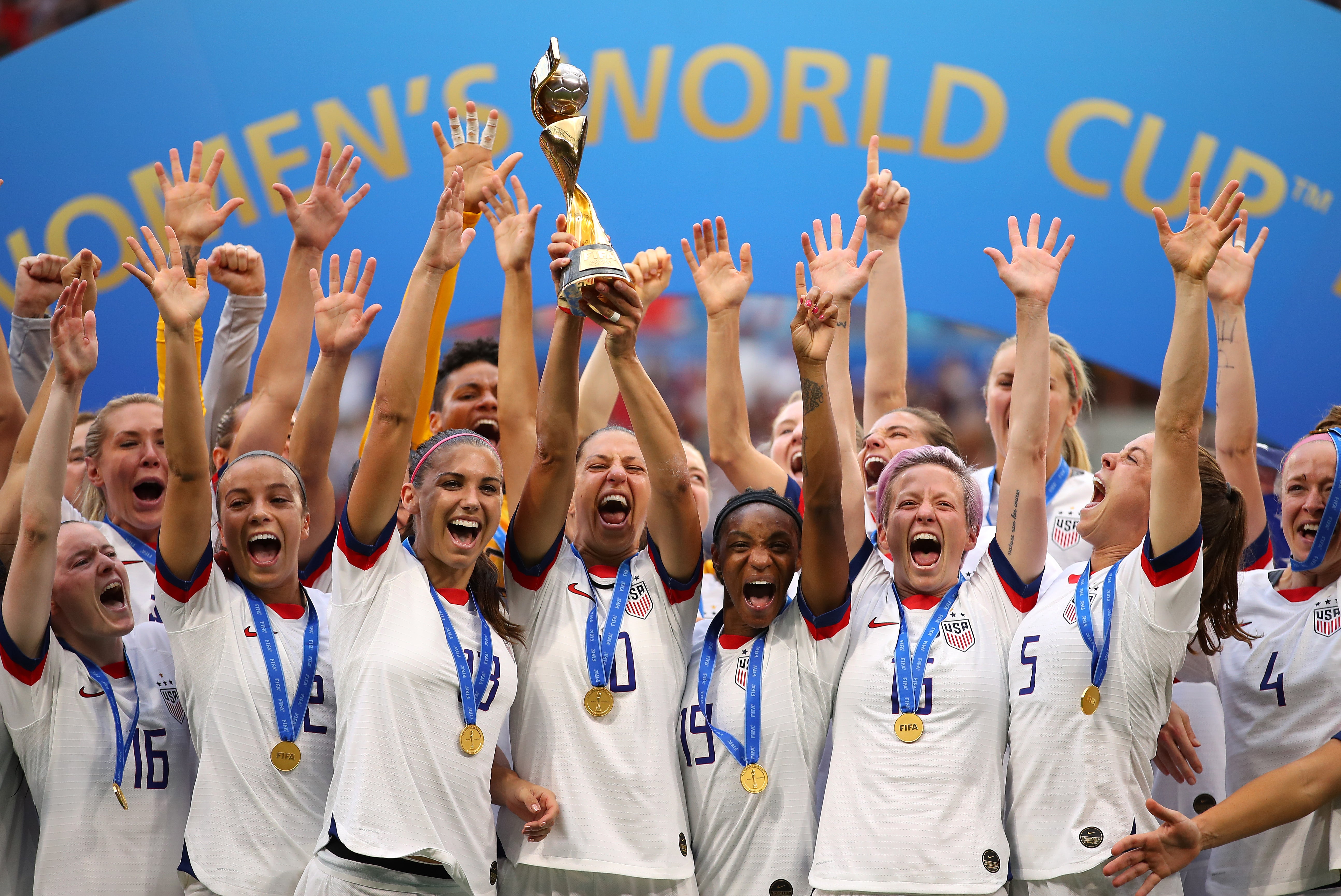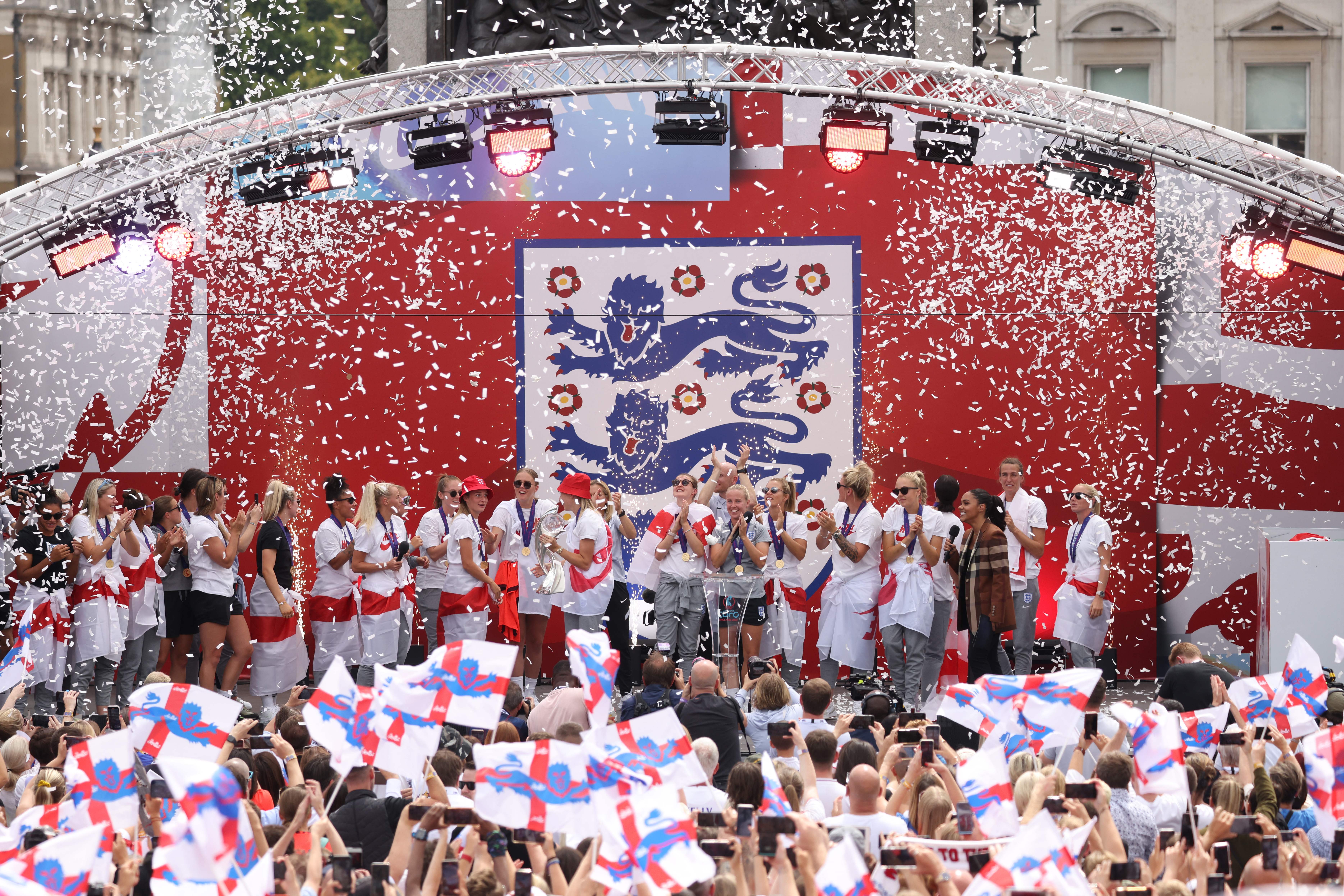UK broadcasters accused of lacking commitment to women’s football as World Cup TV deal still not agreed
UK channels are said to be ‘lowballing Fifa’ and stakeholders fear the impact of England’s Euro 2022 win won’t be capitalised on

Your support helps us to tell the story
From reproductive rights to climate change to Big Tech, The Independent is on the ground when the story is developing. Whether it's investigating the financials of Elon Musk's pro-Trump PAC or producing our latest documentary, 'The A Word', which shines a light on the American women fighting for reproductive rights, we know how important it is to parse out the facts from the messaging.
At such a critical moment in US history, we need reporters on the ground. Your donation allows us to keep sending journalists to speak to both sides of the story.
The Independent is trusted by Americans across the entire political spectrum. And unlike many other quality news outlets, we choose not to lock Americans out of our reporting and analysis with paywalls. We believe quality journalism should be available to everyone, paid for by those who can afford it.
Your support makes all the difference.Supporters still do not know where they can watch this summer’s Women’s World Cup, as a UK broadcast deal has not yet been agreed a mere six months before the tournament starts in New Zealand and Australia.
The situation has aggravated a number of stakeholders within the game due to the knock-on effect, especially with regards to capitalising on the impact of England’s Euro 2022 win and the inability to plan without the most important media agreed.
One involved source describes it as “unprecedented”, pointing to how a similar timescale for the men’s World Cup - in June 2022 - was already seeing the TV schedule for the knock-outs finalised.
The Independent has been told that meetings over the rights took place between UK broadcasters and Fifa in Doha, after the tender process started in June.
Various sources have described the offers from UK channels as ranging from “lowballing Fifa” to “unacceptable”, although discussions are ongoing and there is hope of an announcement within the next few weeks.
The lack of clarity has nevertheless led to sources doubting “commitment” to the women’s game after Euro 2022, although it is understood that one issue for broadcasters is the time of the games.
England’s first match against one of the remaining play-off winners in Brisbane on 22 July will take place at 9.30am UK time with their second, against Denmark in Sydney, kicking off at 7.30am UK time. Defending champions USA, meanwhile, start both of their opening games at midnight UK time.

Fifa insist they have a duty to only accept a fair offer in order to maximise the huge growth of the women’s game, since they are aware of the strong global broadcast figures and the entire tournament is naturally viewed as the flagship for reinvesting into the women’s game.
The global governing body invested £800m between 2019 and 2022 and a successful World Cup is crucial to perpetuating growth. It is this that has led to criticism for broadcasters, both from within the game and in public
“This is not a case of being priced out, but rather testament to a lack of willingness of broadcasters to pay what the women's game deserves," Fifa’s chief business officer Romy Gai said in October. “Audience figures show that the Women's World Cup 2019 in France was a catalyst for change in terms of TV audience. We know the opportunity for women's football is there. Now, together, we need to capture it.”
Fifa president Gianni Infantino then followed this by describing the offers as “100 times less, even more than 100 times in some occasions, then this is not acceptable”. “I don’t want to mention them, but those who are there, they know it.”
The Independent contacted broadcasters but none were willing to comment on an ongoing negotiation process.
A major problem is that various stakeholders and partners have found that they have been unable to properly plan campaigns for the women’s World Cup since they have no detail on when it will be shown or who will be involved, potentially mitigating the impact of the tournament.
The rights process was split from the men’s game in December 2021.
Euro 2022 was shown across BBC to huge success, with an audience of 27.4m watching coverage across the tournament and a peak audience of 17.4m watching England’s 2-1 win over Germany in the final at Wembley.

Join our commenting forum
Join thought-provoking conversations, follow other Independent readers and see their replies
Comments